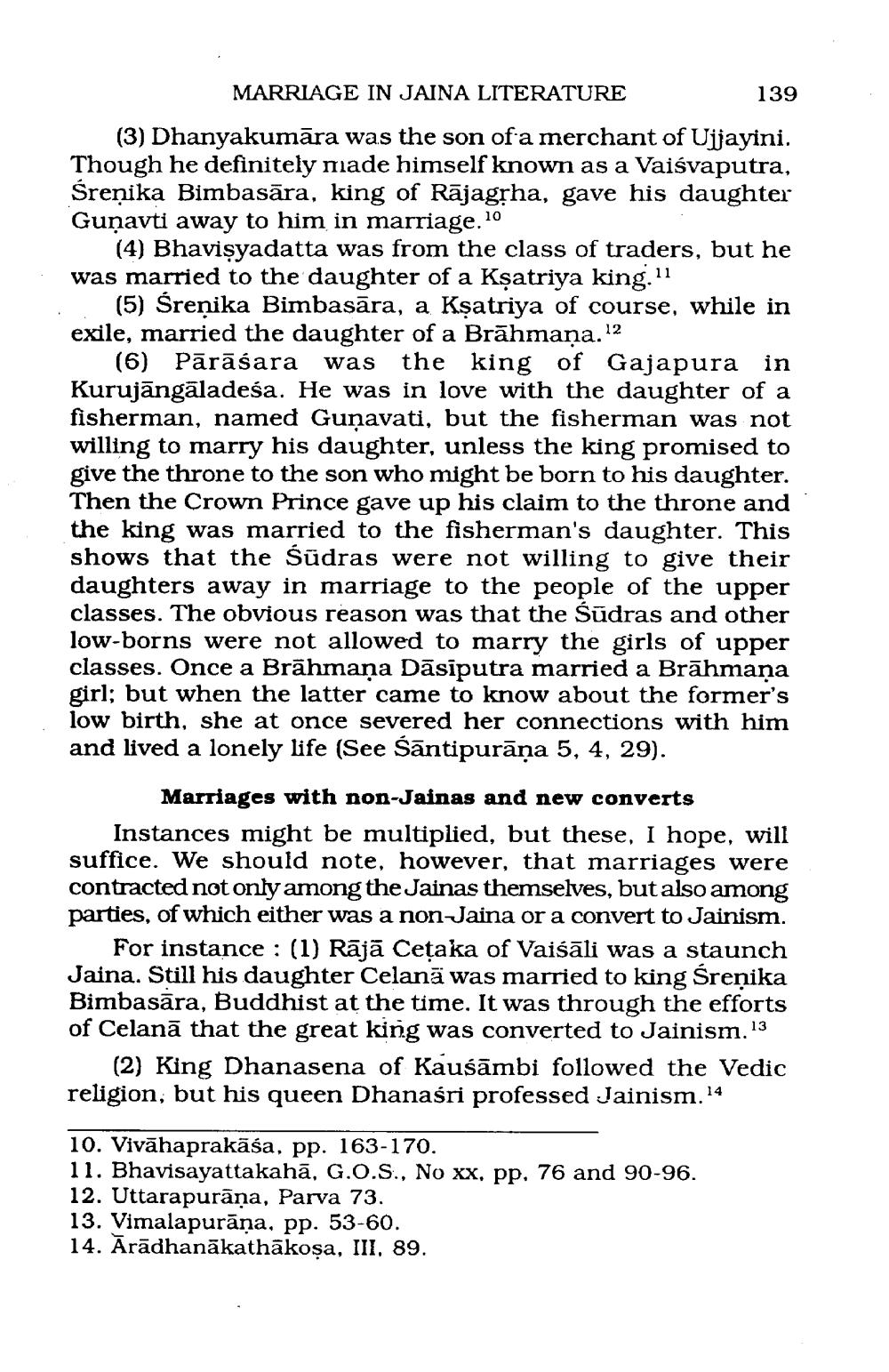________________
MARRIAGE IN JAINA LITERATURE
139 (3) Dhanyakumāra was the son of a merchant of Ujjayini. Though he definitely niade himself known as a Vaiśvaputra, Śreņika Bimbasāra, king of Rājagsha, gave his daughter Gunavti away to him in marriage. 10
(4) Bhavisyadatta was from the class of traders, but he was married to the daughter of a Ksatriya king. 11
(5) Śrenika Bimbasāra, a Ksatriya of course, while in exile, married the daughter of a Brāhmana. 12
(6) Pārāśara was the king of Gajapura in
rujāngāladeśa. He was in love with the daughter of a fisherman, named Gunavati, but the fisherman was not willing to marry his daughter, unless the king promised to give the throne to the son who might be born to his daughter. Then the Crown Prince gave up his claim to the throne and the king was married to the fisherman's daughter. This shows that the Sūdras were not willing to give their daughters away in marriage to the people of the upper classes. The obvious reason was that the Śūdras and other low-borns were not allowed to marry the girls of upper classes. Once a Brāhmaṇa Dāsīputra married a Brāhmaṇa girl; but when the latter came to know about the former's low birth, she at once severed her connections with him and lived a lonely life (See śāntipurāņa 5, 4, 29).
Marriages with non-Jainas and new converts Instances might be multiplied, but these, I hope, will suffice. We should note, however, that marriages were contracted not only among the Jainas themselves, but also among parties, of which either was a non Jaina or a convert to Jainism.
For instance : (1) Rājā Cetaka of Vaiśāli was a staunch Jaina. Still his daughter Celanä was married to king Śreņika Bimbasāra, Buddhist at the time. It was through the efforts of Celanā that the great king was converted to Jainism.13
(2) King Dhanasena of Kausāmbi followed the Vedic religion, but his queen Dhanasri professed Jainism.14
10. Vivāhaprakāśa, pp. 163-170. 11. Bhavisayattakahā, G.O.S., No xx, pp. 76 and 90-96. 12. Uttarapurāna, Parva 73. 13. Vimalapurāna, pp. 53-60. 14. Ārādhanākathākosa, III, 89.




